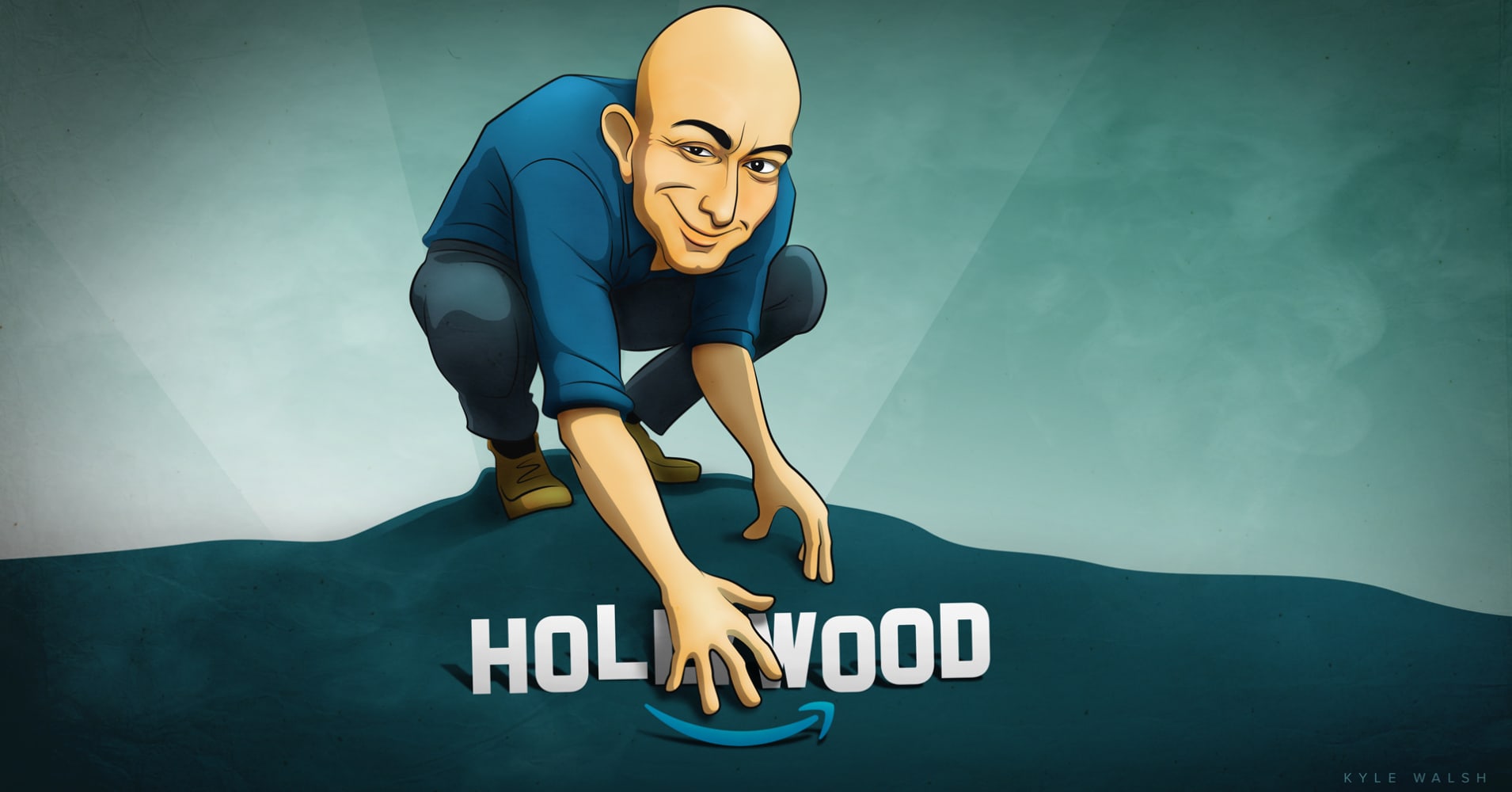
If Amazon Channels is the neutral platform playing nice with content creators, Amazon Studios is a different beast altogether. It competes directly with the entertainment industry for original shows and movies.
Amazon will spend $5 billion to $6 billion this year on content, according to an estimate from BTIG media analyst Rich Greenfield. That is a decent-sized bet for Hollywood but a tiny fraction of Amazon’s operating expenses, which topped $220 billion last year. Netflix will likely spend about $15 billion on content this year, Greenfield estimated.
There’s no questioning Bezos’ willingness to up the ante. He’s got an increasingly healthy balance sheet — net income tripled to $10 billion in 2018. And investors have given him plenty of rope when it comes to spending.
Still, Amazon hasn’t rolled out a three- or five-year plan to reach Netflix-level spending. In fact, the company has no specific multiyear road map at all when it comes to content purchases, according to people familiar with the matter. Bezos and Jeff Blackburn, senior vice president of business development and digital entertainment, prefer not to plan more than 12 months in advance, the people said.
That lack of planning and strategic focus may help explain why Amazon Studios has floundered at times in recent years. Prior to Salke taking over last year, Amazon Studios had been run by Roy Price, who departed Amazon amid sexual harassment allegations in late 2017.
Like Salke, Price’s stated strategy was to invest in shows that supported Prime. Amazon looked at who was watching a given show and saw how much that person was using Prime for other perks, mainly free shipping. If a Prime subscriber watched a show a lot and wasn’t taking advantage of Prime’s other benefits, the show got credit for that customer’s subscription dollars, according to people familiar with Amazon’s internal methods.
Price was focused on high-minded, potentially award-winning content to lure users into Prime. His team had several hits, including “Transparent” and, more recently, “The Marvelous Mrs. Maisel,” which won the 2018 Emmy Award for best comedy series. He also bought “Manchester By The Sea,” winner of the 2017 Academy Award for best original screenplay, and “The Big Sick,” which received an Academy Award nomination for its screenplay.
Price’s division also had some expensive misfires, such as Spike Lee’s 2015 film “Chi-Raq” and a disastrous five-year movie deal with Woody Allen, who’s now suing Amazon Studios in a $68 million breach-of-contract lawsuit.
In his three years running the business, Price purposefully avoided mass-appeal broadcast content, so that he could clearly differentiate Amazon from normal TV and justify the Prime membership. But buying niche, art house content wasn’t a great approach to drawing tons of new people to Prime. David E. Kelley, the creator of shows such as “Ally McBeal,” described Amazon’s entertainment division in 2017 as “a bit of a gong show,” in an interview with The Wall Street Journal. He added, “They are in way over their heads.”
Insert Salke, who was hired because of her prior experience at NBC and 20th Century Fox, where she bought and developed shows including “Modern Family,” “Glee” and “The Good Place.” Her mandate was to deliver broader hits with more of a broadcast sensibility, according to people familiar with the matter.
Under Salke, Amazon has finally started to focus on “films and series with broader appeal that resonate with the wider consumer base that uses Amazon,” said Floris Bauer, the co-founder and president of independent studio Gunpowder & Sky. “It’s not to say you can’t do award-winning films, but you’re only hitting a certain group. It was a missed opportunity initially.”
Amazon didn’t make Salke available for an interview for this story. An Amazon spokeswoman declined to comment for the story.
Be the first to comment